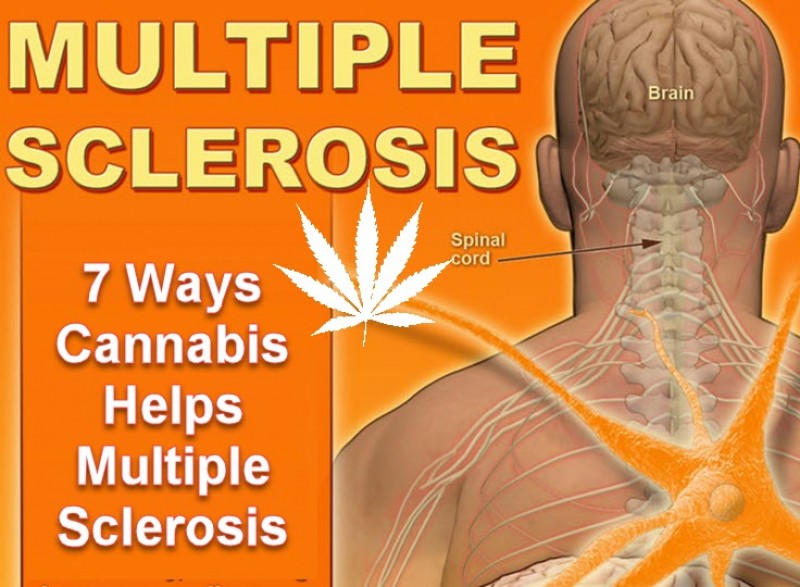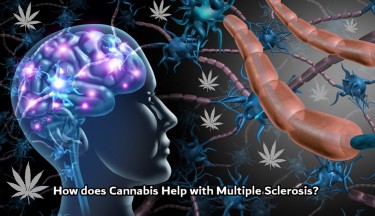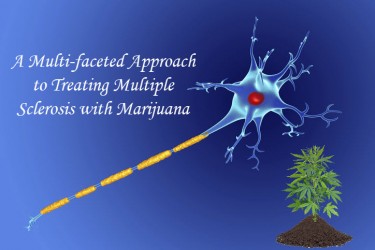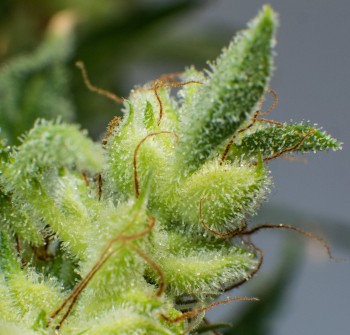7 Ways Cannabis Helps Multiple Sclerosis
7 Ways Marijuana Helps With Multiple Sclerosis from CannabisNet on Vimeo.
Getting a multiple sclerosis diagnosis means that you have this condition for life.
MS affects the brain, spinal cord, and optic nerve – important body parts that will have an impact on basic bodily functions such as speech, swallowing, walking, muscle control, and balance. Some patients with MS have mild symptoms, while others have more debilitating cases that make it difficult to live a normal life.
Cannabis has shown to be beneficial for MS patients by reducing the severity of symptoms. It’s a much safer alternative to the pharmaceuticals that are traditionally prescribed, which usually have unwanted side effects ranging from mood disorders, chest pain, nausea, rapid heart rate, and fatigue among others.
There is no known cure for multiple sclerosis, but here’s what we know so far about how cannabis can benefit MS patients:
Pain: A majority of MS patients have to deal with excruciating pain caused by pressure exerted on the musculoskeletal system. Pain may also be caused by inflammation or muscle spasms. However, pain is one of the most common reasons patients seek out cannabis because its analgesic (painkilling) properties are well-known and documented. In a 2005 study, sublingual cannabis was shown to be effective in addressing pain as well as sleep disorders among patients with MS. Another 2007 study showed that THC was more effective in decreasing pain among MS patients, compared to dronabinol (synthetic THC) and CBD.
Muscle spasticity: MS patients suffer from uncontrollable muscle spasms, which can cause incontinence. The Tel Aviv University in Israel conducted a study where mice were injected with conditions that mimic the symptoms of MS. When the animal subjects were administered with CBD, they were able to walk again. Prior to administering CBD, the mice were unable to walk due to tightness and stiffness. Another 2012 study revealed that cannabis was two times more effective in providing relief from muscle spasms and pain compared to a placebo. After the patients used cannabis for 12 weeks, they reported a significant reduction in muscle spasticity.
Vision: Multiple sclerosis affects the optic nerve, since it is part of the central nervous system that is compromised with the disease. The optic nerve is responsible for transmitting visual images and light to the brain. As much as 90% of MS patients suffer from vision problems, and it’s one of the most common symptoms of relapsing multiple sclerosis. However, cannabis has anti-inflammatory properties that treat the inflammation in the optic nerve, in the same way that cannabis helps treat glaucoma and other eye problems caused by inflammation.
Inflammation: Chronic inflammation is the culprit to many of the symptoms affecting MS patients. However, the cannabinoids in cannabis have been proven to be powerful anti-inflammatories. In one study, animal subjects who were bred to lack the CB1 receptor were shown to be prone to inflammation and neurodegeneration when administered with an animal model of MS referred to as experimental allergic encephalomyelitis.
Sleep: Chronic pain and muscle spasticity, as well as the other symptoms of MS, make it difficult for patients to get a good night’s rest. Cannabis has been proven to help induce sleep for patients suffering from insomnia as well as other sleep disorders. Research shows that patients with MS are thrice as likely to suffer from disturbed sleep, and twice as likely to report reduced quality of sleep. The most common sleep conditions associated with multiple sclerosis are fatigue, insomnia, obstructive sleep apnea, restless leg syndrome, narcolepsy, hypersomnia, and nocturia. Indica strains have been proven useful in treating a wide range of sleeping disorders, and can be used by MS patients in alleviating sleep conditions.
Fatigue: One of the most prevalent and common MS symptom is fatigue, which affects around 80% of MS patients. Fatigue can be experienced as brain fog or actual physical fatigue, characterized by the lack of energy to do anything at all. Certain cannabis strains, particularly the sativa and sativa-dominant varieties, help increase energy levels because they block the GABA, a neurotransmitter that decreases dopamine production resulting in higher energy levels.
Depression: Multiple sclerosis patients are vulnerable to depression. Aside from the diagnosis of MS which may provoke depressive episodes, the condition itself may physically cause depression because it destroys protective coating on the nerves which send mood signals to the brain. Additionally, depression is a side effect of numerous MS medications. Studies show that 90% of 112 participants diagnosed with MS reported saying that cannabis reduced depression and symptoms of emotional dysfunction. Additionally, depression is a condition that has seen great success in being treated when cannabis is involved.
Have you used cannabis to treat MS? Share your experience with us in the comments below!
7 Ways Marijuana Helps With Multiple Sclerosis from CannabisNet on Vimeo.
OTHER STORIES YOU MAY ENJOY...
CANNABIS FOR MULTIPLE SCLEROIS, CLICK HERE.
OR..
MEDICAL MARIJUANA STRAINS FOR MULTIPLE SCLEROSIS, CLICK HERE.
OR..
HOW CANNABIS HELPS WITH MULTIPLE SCLEROSIS?









